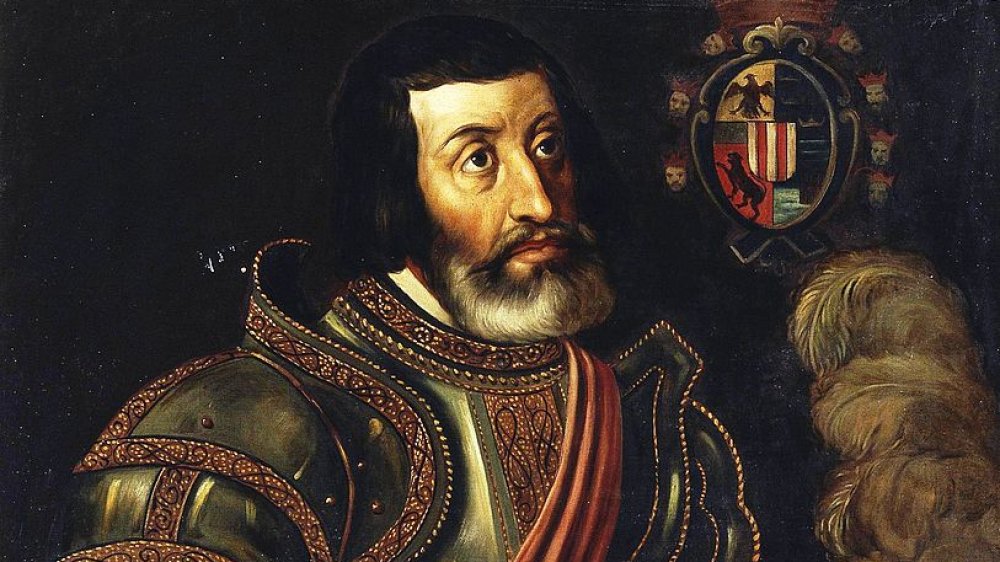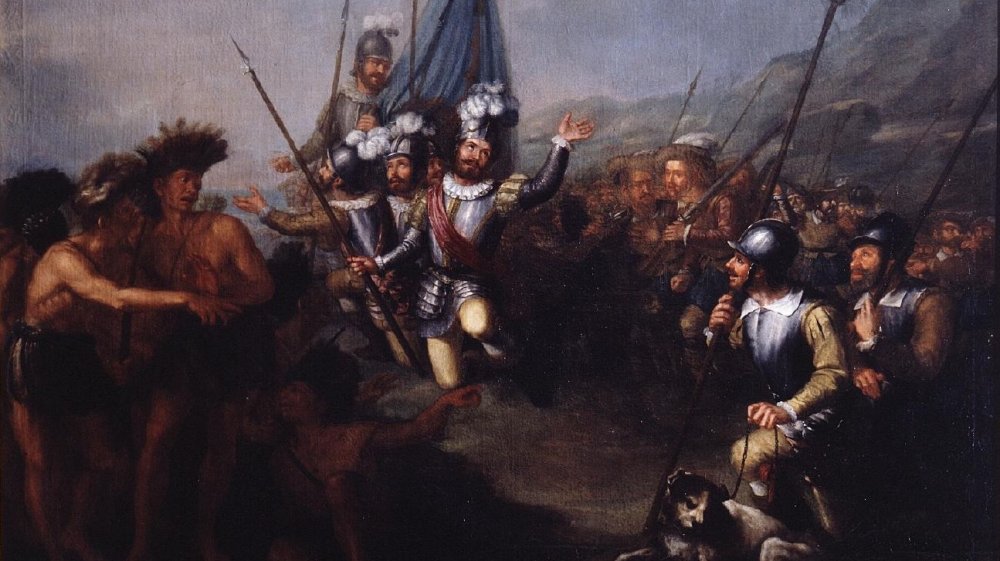The Untold Truth Of The Spanish Conquistadors
In 1520, the Aztec town of Zultepec became the site of a morbid smorgasbord. Perhaps this detail related by the Guardian says it all: after what went down at Zultepec, the town's name was changed to Tecoaque, which translates from the native Nahuatl language to "The place where they ate them." The "them" in that mouth-watering moniker refers to a convoy of conquistadors and allies who found themselves on the wrong end of a carving knife. For an estimated six months, the captives either became part of a meal or got fed to Aztec gods during ritual sacrifices.
The half-year marathon of cannibalism lit a vengeful fire in the belly of conquistador Hernán Cortés, who sent his men to decimate "The place where they ate them." Insatiably hungry for power, he would topple the Aztec Empire that same year. Conquest must have come as second nature to a man like Cortés. It was the nature of all conquistadors.
They came, they saw, they conquistador-ed
A conquistador's mission in life is succinctly conveyed in the title itself. Spanish for "He who conquers," according to ThoughtCo, the label "conquistador" applied to people who led efforts to dominate and enslave native populations in the so-called New World, seeking land, power, glory and gold. Explorer Christopher Columbus paved the way for that practice with his voyages and acts of conquest. Though not a conquistador himself, Columbus may have traveled with a future conquistador named Ponce de Leon.
Per the Encyclopedia Britannica, de Leon might have accompanied Columbus on his second voyage in 1493. He would go on to found the first European settlement on Puerto Rico. He was also credited with being the first European to set foot on Florida, which de Leon named. He's also said to have pursued the Fountain of Youth, which was obviously a wild gosling chase.
Other conquistadors set out to find the lost city of gold, El Dorado but found disappointment instead, via the BBC. Notorious conquistador Francisco Pizarro struck gold in Peru. History writes that his arrival in Peru culminated in the downfall of the Inca Empire. Not every conquistador came from Spain, though most did. The conquerors hailed from across Europe and rained destruction on the cultures they encountered.

